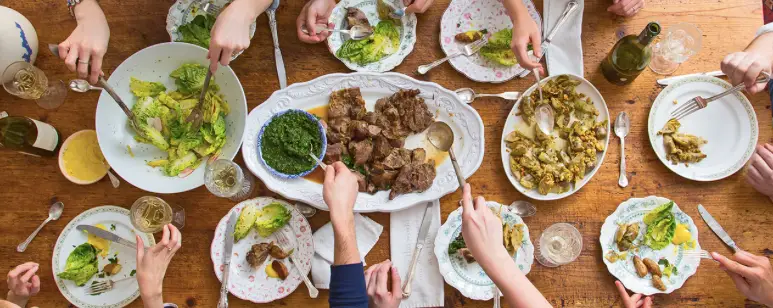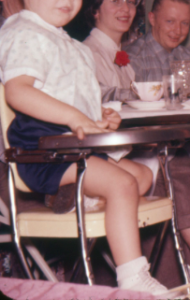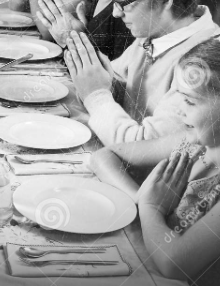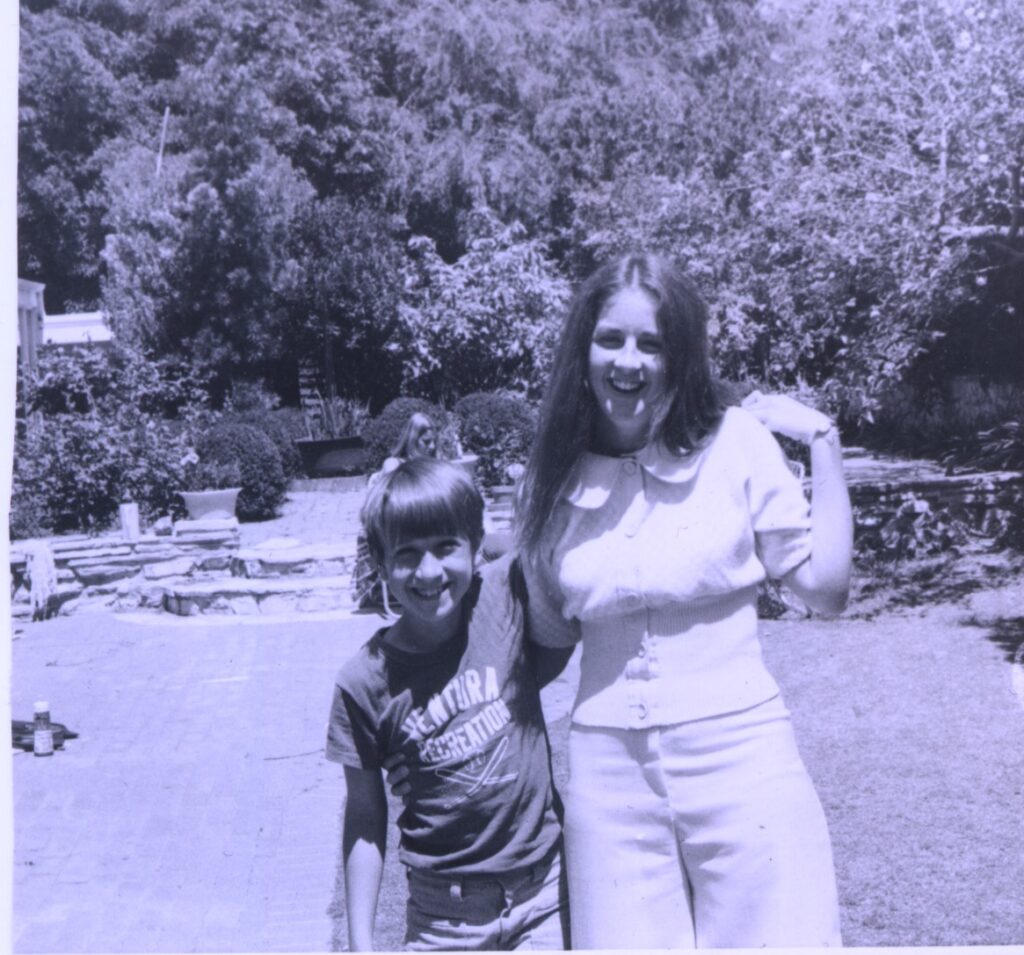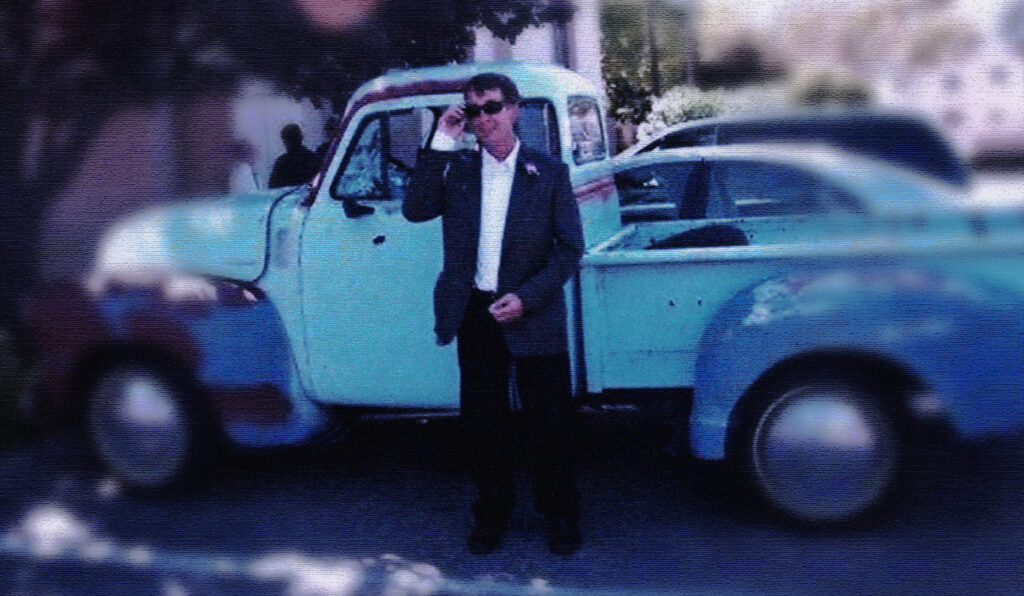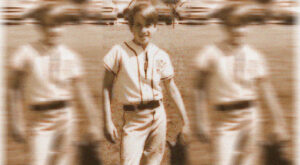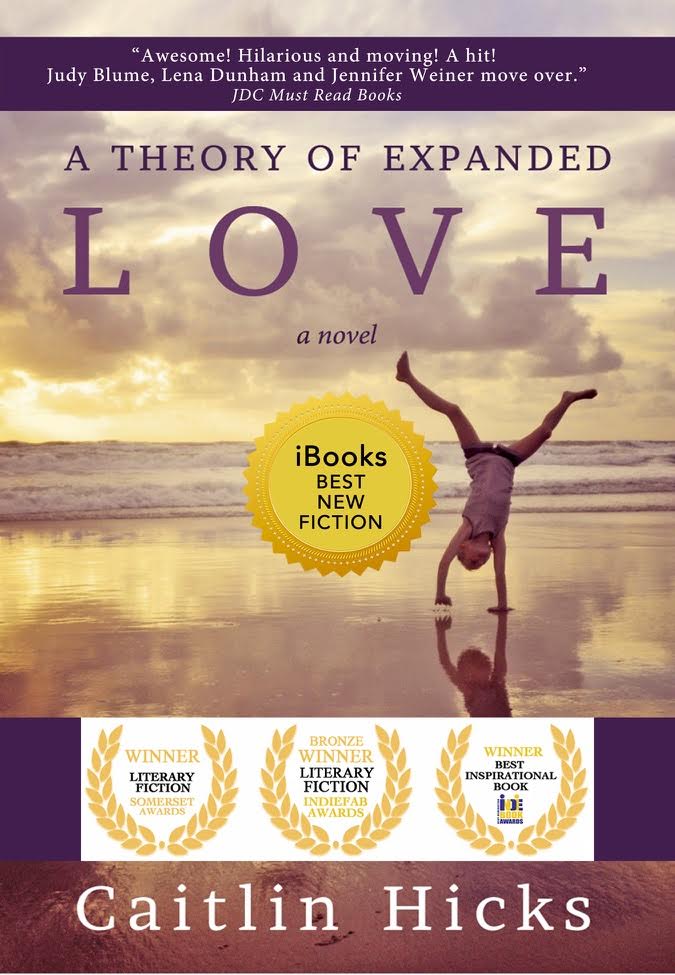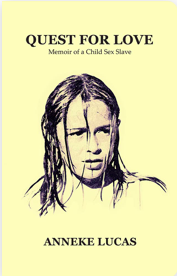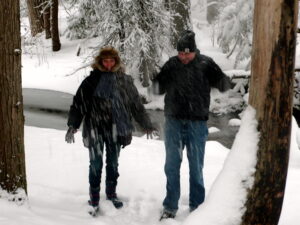This chapter from this celebrated novel A THEORY OF EXPANDED LOVE, is a snapshot of 1963, in a big American family just trying to do the right thing. Told through the eyes of one of the children, Annie, who is twelve-going-on-thirteen, the novel is set on a warm California night at an enormous event: dinner. Clashing are the noisy and urgent desires of each child in a sprawling group of fifteen. Everyone is famished.
And then, there’s the guest.
The guest who represents everything. God, Church, Community, Family. Everyone vying for his attention and approval. Pre-dinner hunger permeating the visceral experience of more than fifteen bodies, a baby with a dirty diaper in the play pen, and the smoking barbeque outside.
It’s a portrait of a childhood. Who was responsible for the details in this picture? How could all the forces at play end up with an outcome like this? It’s painful to look back on it, the haphazard nature of our interactions.
Sometimes I laugh when I think of this scene; it’s so full of the suffering of the low status character – the essence of good humor. And other times, it seems very sad. Some of us got lost in this family.
That’s Andrew, my little brother, hanging on my shoulder in Ventura, California, where the family moved the summer of my first year at university. That beautiful California sun splashes gloriously around us. Andrew, who could have been the baby in the crib in the fictional Chapter 7, comes up to my shoulder.
Decades later, he lives in a rehab center, learning to walk again. And waiting for a phone call or a visit from a family member. He hasn’t seen anyone for over a month now.
Every once in a while I get an email with his first name in the subject line. And I know it’s urgent news: the last announcement: he was admitted to hospital because he was not eating or drinking. Losing weight. Incoherent speech. MRI’s and CT’s reveal nothing. His balance, reflexes, and motor function have been declining over the years; It’s not ALS. It’s not Parkinsons. It’s not any kind of disease with a name, but he has it in spades.
The last time I remember seeing him functioning more or less normally, was at a funeral in 2010. We were at the reception for my eldest brother’s burial. At the time, Andrew had driven from Ventura in his 1950’s blue Chevy truck up the coast to Palo Alto for the funeral, and I wondered how he had gotten here safely. One of his hands, I think it was his left, shivered in a way that made me think ‘palsy’. The sun was making shadows in the brilliant California afternoon. Because I was worried about his ability to drive, especially after it got dark, I asked him if he’d stay overnight. He was determined to drive back himself. I felt his stubbornness. But he was not just my almost-youngest brother, he was a grown man, besides, he’d arrived at the funeral safely, after a long drive. I got the feeling that he did this all the time.
There’s so much more, as always there is. I’ve written, edited and edited this podcast, aware of his privacy at the same time wanting to explore and express – something.
Just prior to finishing this podcast, I remembered that for a few years, he wrote and produced albums of original songs, and there is this one song with this amazing lyric that I really liked. In one of my phone conversations with him today, I asked him if he’d want me to play his song ‘Happy to Be’ as part of this podcast. He said yes. It’s played in his voice, at the end, in celebration of him.
Below, is the podcast for download:
